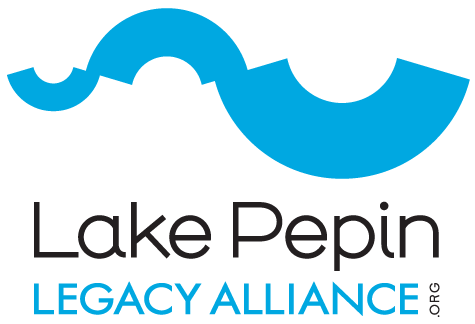By: Susan Langer, Founder & CEO of Live. Give. Save., Inc.
Carl and Sorin Sorensen, the first commercial fishermen from the Sorensen Family on Lake Pepin.
My father is Milt Sorensen and the son of Svend Sorensen, who founded Sorensen Fish Company in Bay City, Wisconsin, in 1930. Grandpa sold the business to Dad and my Uncle Tut in 1965; they and my brothers, Peter and Michael, harvested what’s known as “rough” fish from the pearly waters of Lake Pepin and surrounding area until around 1990. Rough fish are the bottom-eaters – carp, catfish, buffalo, and sheep head. Sounds awful, doesn’t it? It wasn’t to us. Smoked carp was a delicacy served at most family celebrations. That said, you have to know how to make it.
In the late 60’s, Ron Schara visited the fish market and wrote a story on the process of smoking fish.
Jewish populations from New York were one of their biggest customers. They used carp and buffalo to make Gefilte fish – a dish made from a poached mixture of ground deboned fish, such as carp, whitefish, or pike – traditionally served as an appetizer by Ashkenazi Jewish households. Historically, it consisted of a minced-fish forcemeat stuffed inside the intact fish skin. When I first moved to New York in 2001, I had the pleasure of bringing Dad and Mom to visit The Fulton Fish Market when it was still located at the South Street Seaport in Manhattan.
On a side note: As a marketer, I was struck by Grandpa’s brand-building savvy when he created the motto: “Eat fish. Live longer.”
(Read about other historic fishing operations in Lake Pepin: Dosdall Member Profile, Smith Member Profile).
The impact of run-off from farming started being recognized in the early 60’s. Dad recalls a commitment made by the Federal government in 1960 (or there abouts) to allocate $2,000 per year for dredging Bay City Bay – recognizing the extraordinary increase in sediment that negatively impacted commercial fishing.
“We processed 3 million pounds of raw fish for three years in a row beginning in 1946. Our first big haul was in 1906, when we processed 500,000 pounds”
Then there was the entrance of polychlorinated biphenyls (PCBs) in the late 70’s. PCBs are highly toxic industrial compounds that accumulate in the sediments at the bottoms of streams, rivers, lakes and coastal areas. They were eventually banned from manufacture in the United States in 1977. Companies like Monsanto used PCBs in their pesticides; as a result, the run-off from farms along the Minnesota and Mississippi Rivers north of Lake Pepin put an end to the glory days of commercial fishing for my father and many others in the area. While seining for rough fish still continues on Lake Pepin today, it is nowhere near the 20 fishing outfits that were operating between Bay City and Pepin in the 70’s and prior.
For more than half a century, our family lived off the fruits of the lake. That’s why this is personal.
Susan Langer developed a new mobile giving app that helps people save for themselves and causes they care about, such as Lake Pepin. The Lake Pepin Legacy Alliance (LPLA) is honored to be one of the first organizations to partner with SPAVE.
My mother used to take us to the beach almost daily in the Summer when we were growing up. I don’t even remember learning how to swim. We skated and ice-fished in the winter. My cousins and neighbors did the same. We didn’t have to go “up north” to enjoy lake life – we were raised on one of the most beautiful and historic areas in the US.
At the time, I did not understand or fully appreciate this gift. I do now. Immensely. That’s why the mission of Lake Pepin Legacy Alliance so strongly resonates with me … and why I want to use whatever resources and influence I have to help save Lake Pepin.
Bravo to the visionaries and supporters of Lake Pepin Legacy Alliance and to the modern leadership by Executive Director, Rylee Main, who is actively seeking ways to build more awareness and financial support from a greater population, particularly younger generations.
Rylee contacted me about our mobile app, spave, which was designed to help consumers give more to the causes they care about, while at the same time empowering nonprofits to generate new revenues without spending precious overhead. We invite you to join us. Together, we’ll accelerate LPLA’s mission to improve water quality, habitat, and accessibility in Lake Pepin. Find more information here. #spavelakepepin



